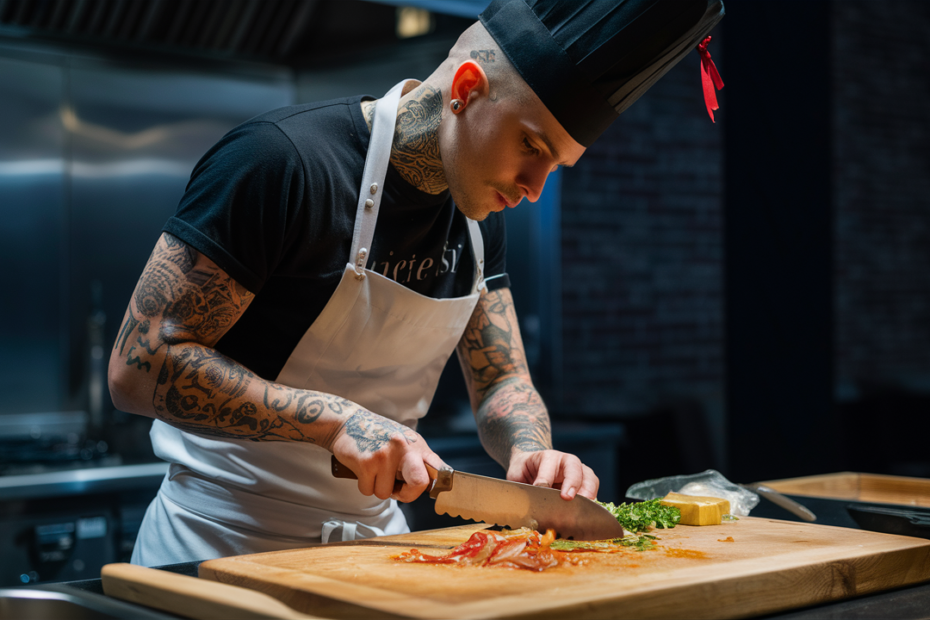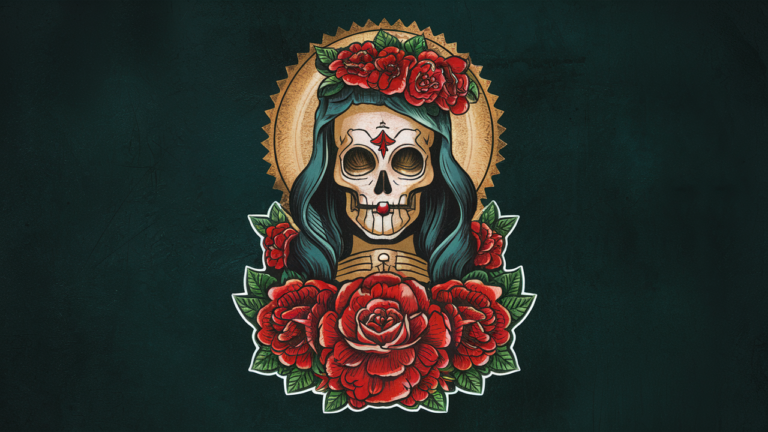In the culinary world, the image of a chef is evolving. No longer confined to the traditional clean-cut, white coat stereotype, today’s chefs are embracing individuality and personal expression. One striking way this is happening is through tattoos. But what does it mean to be a chef with tattoos? How do these inked culinary artists challenge and reshape industry norms?

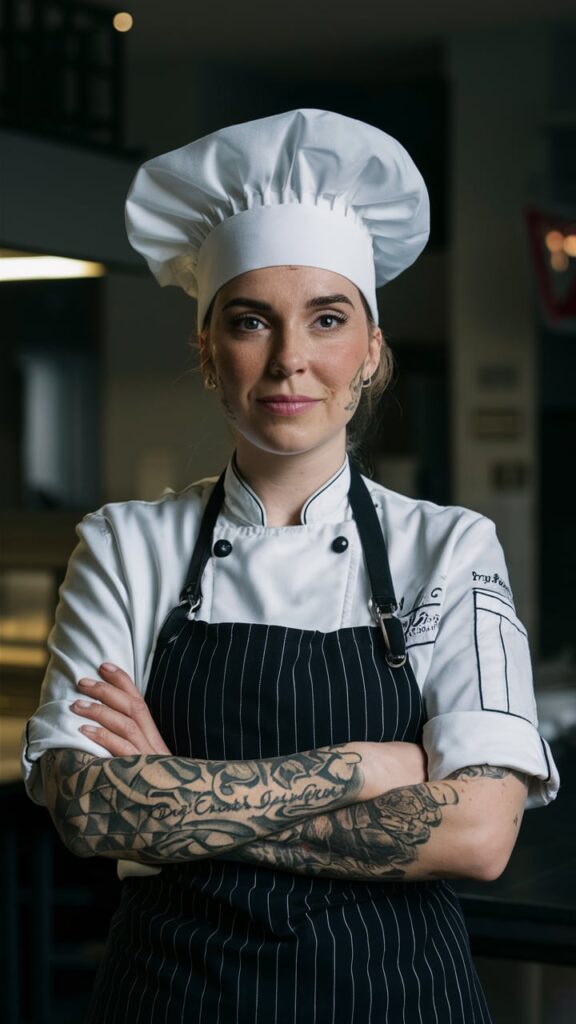
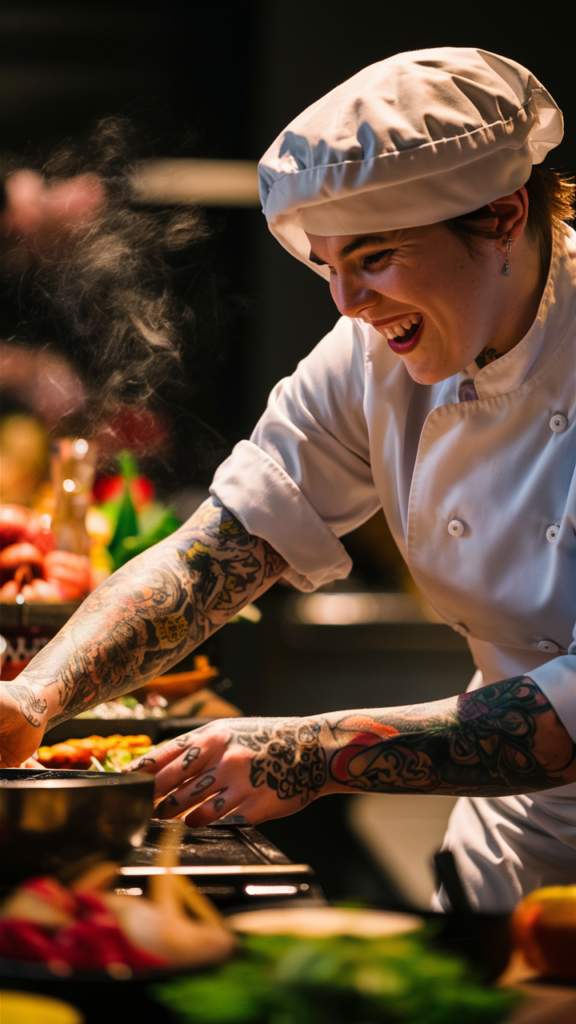
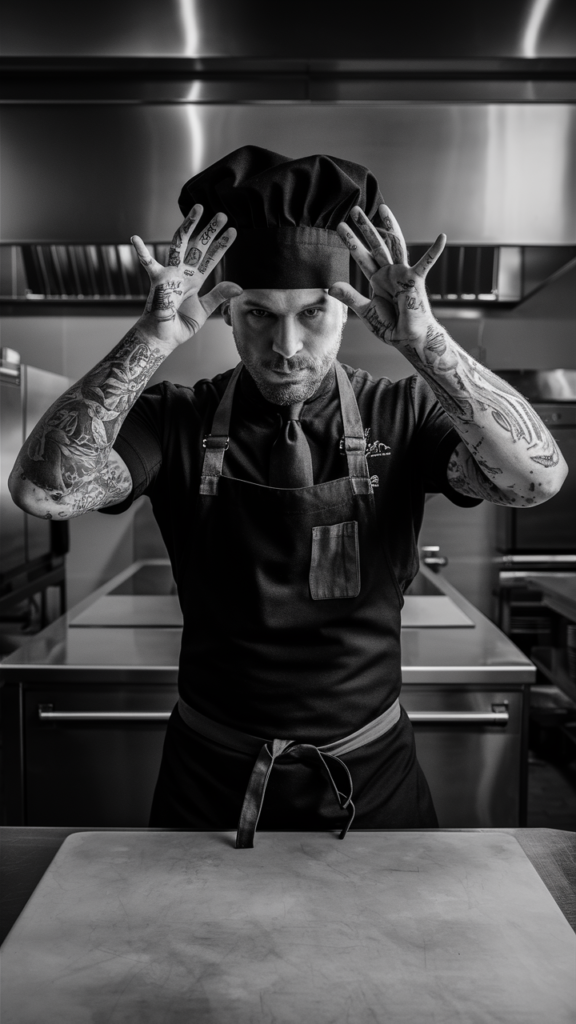
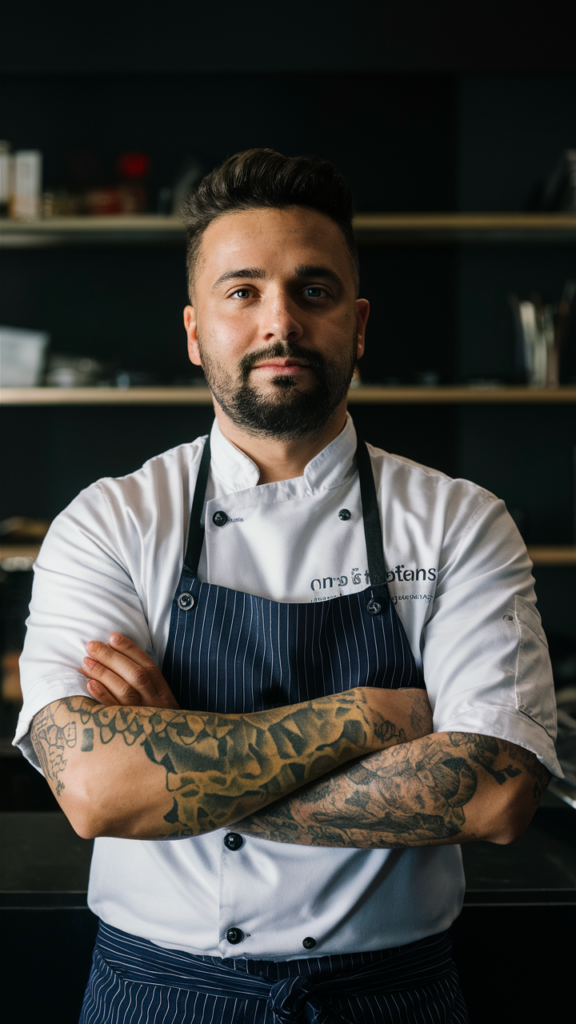
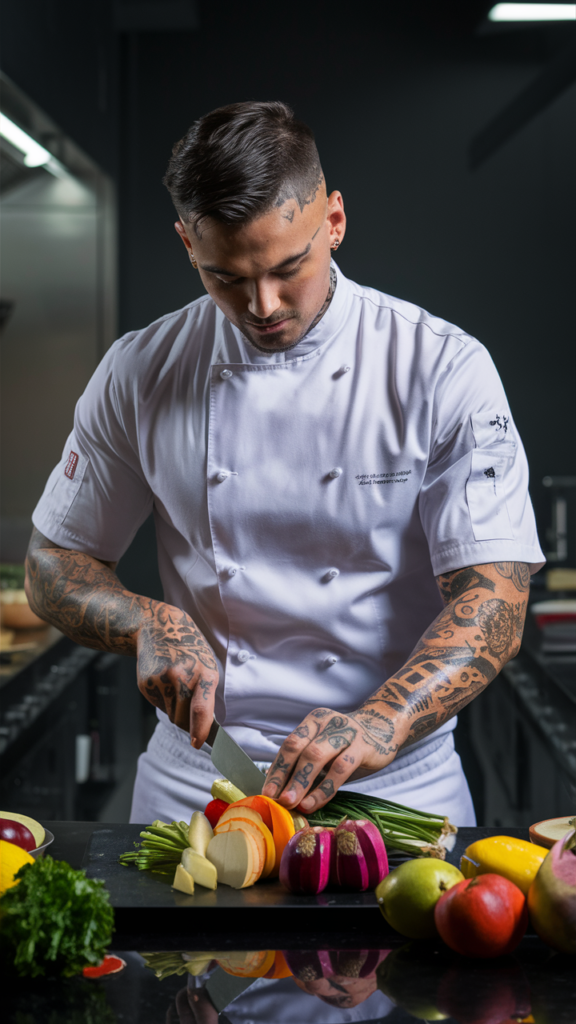
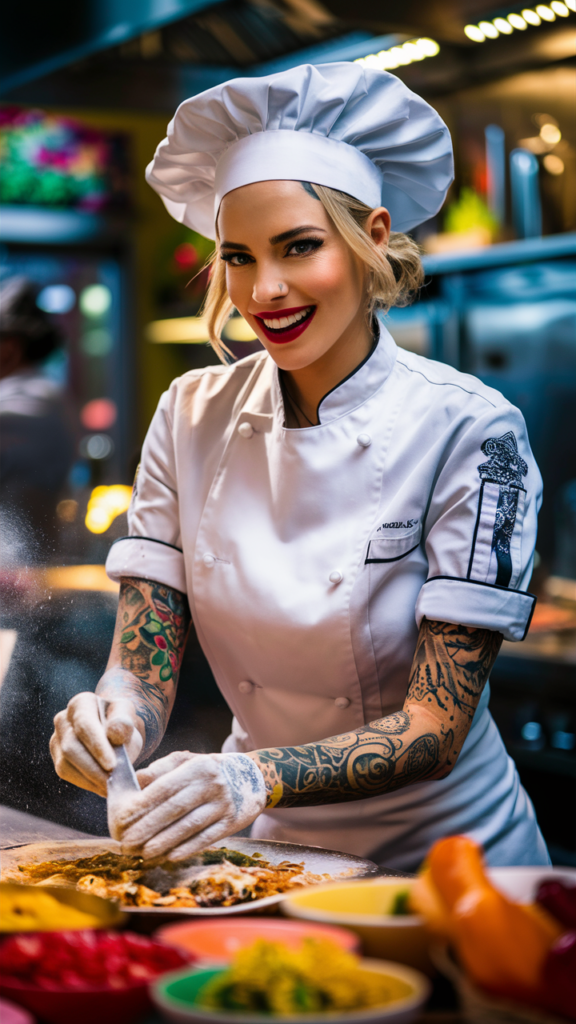
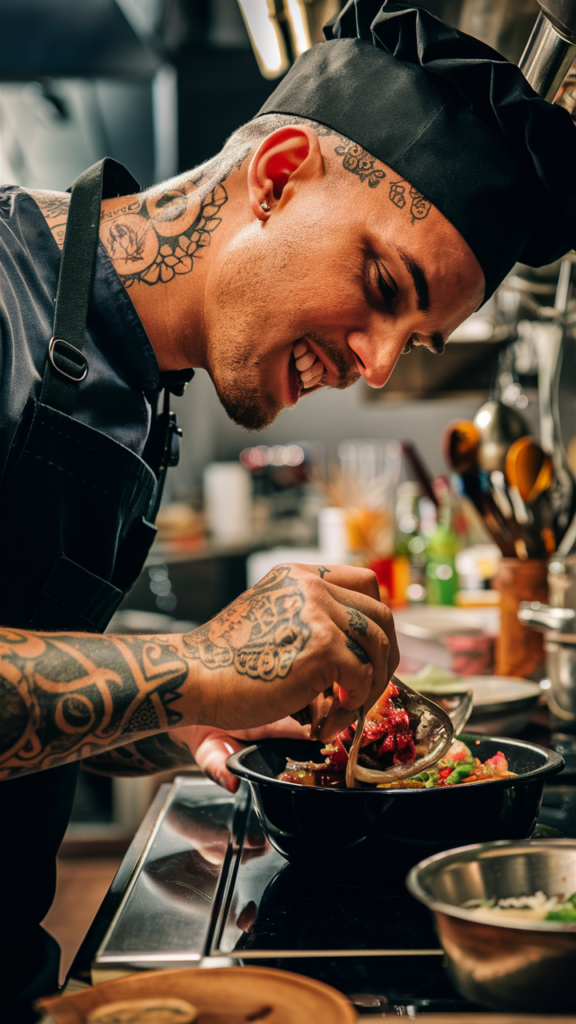
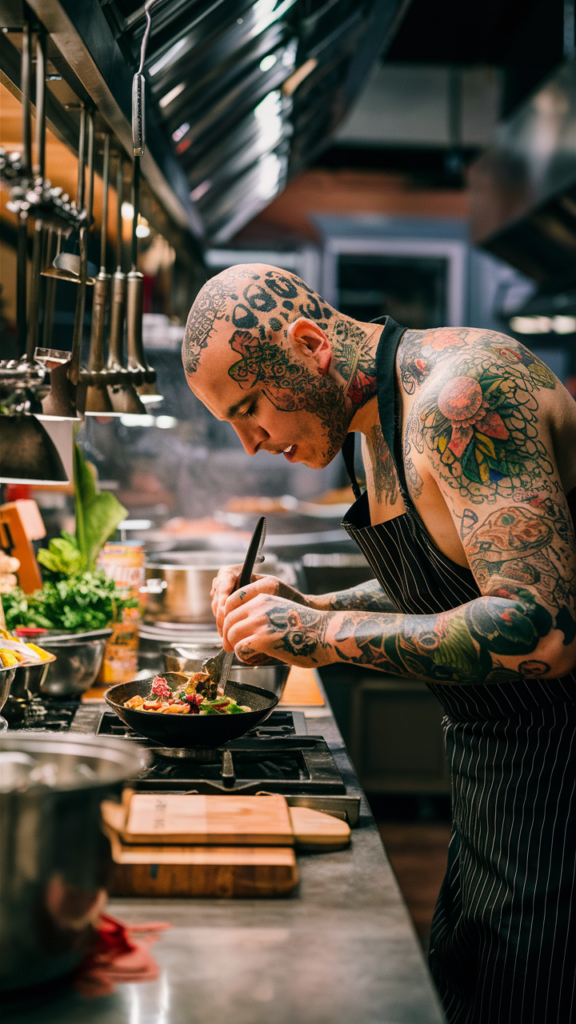
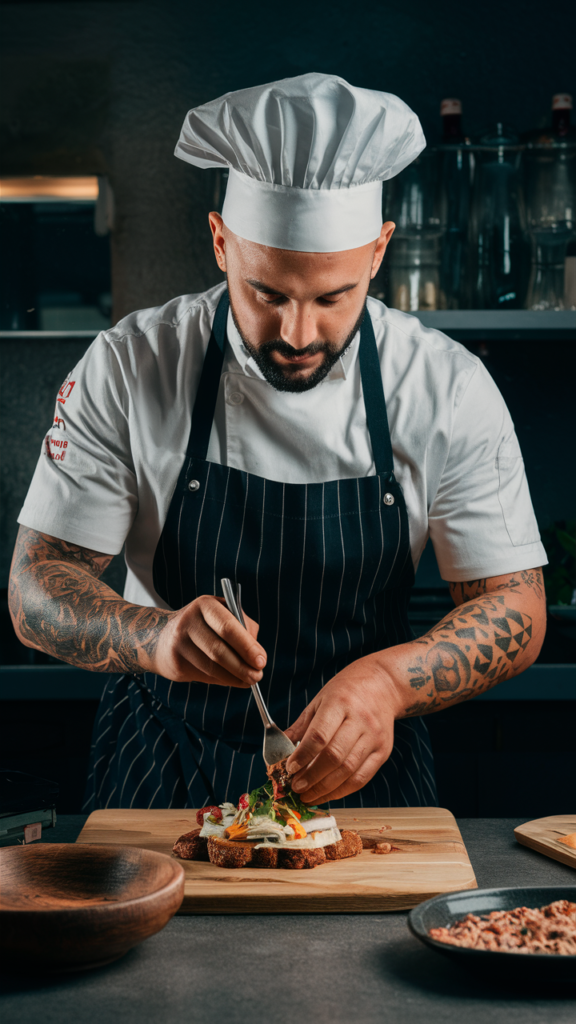
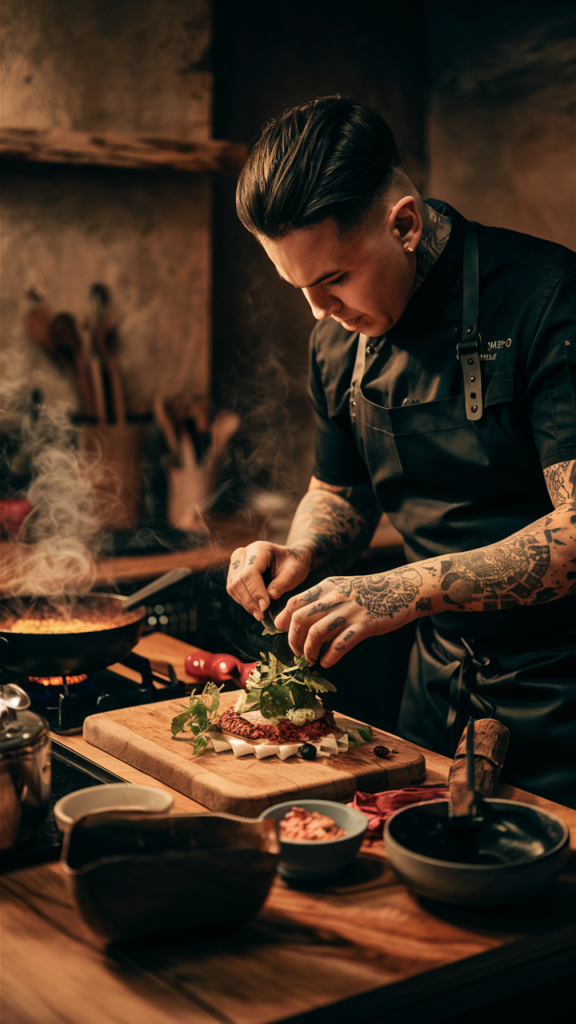
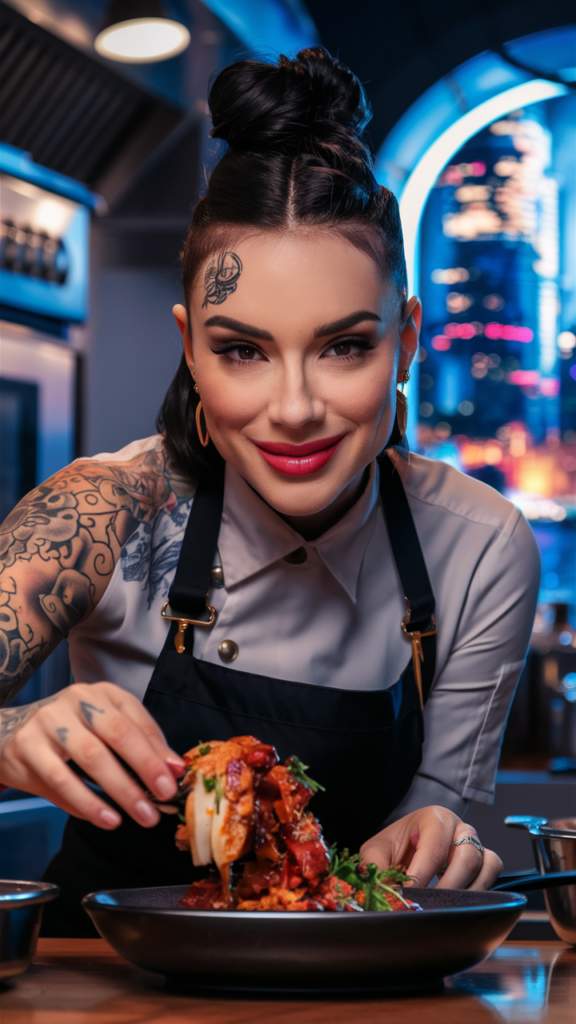
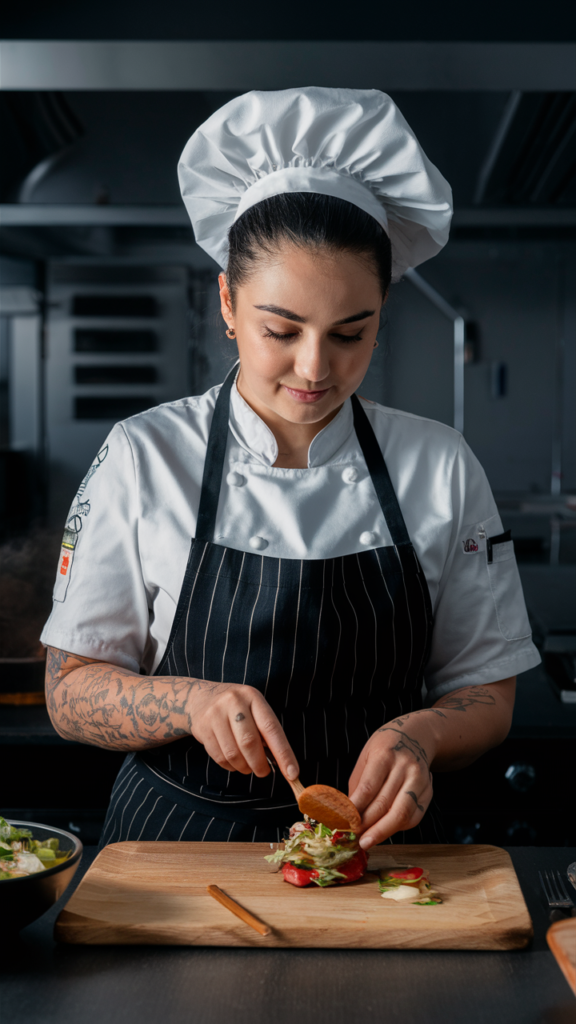
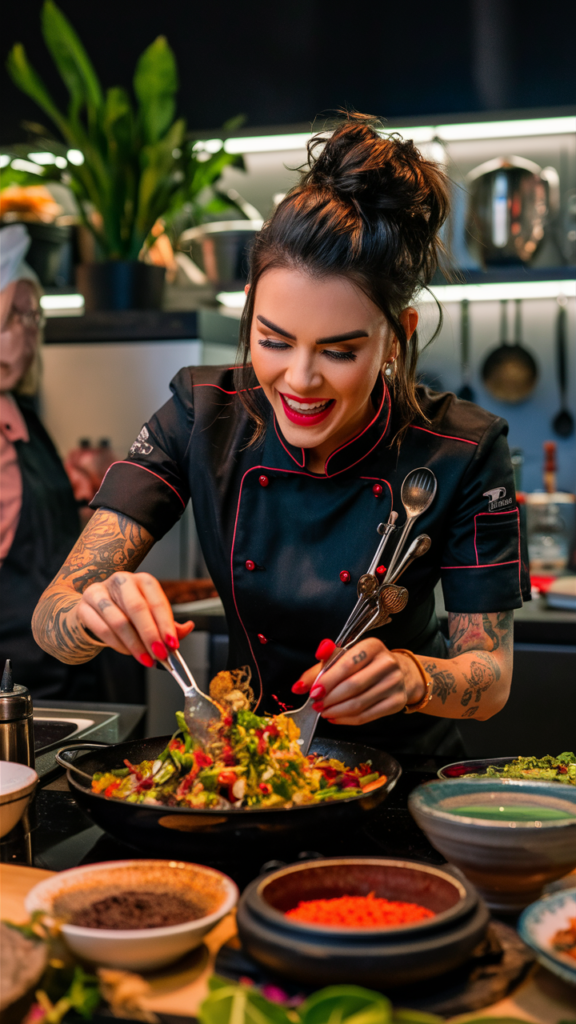
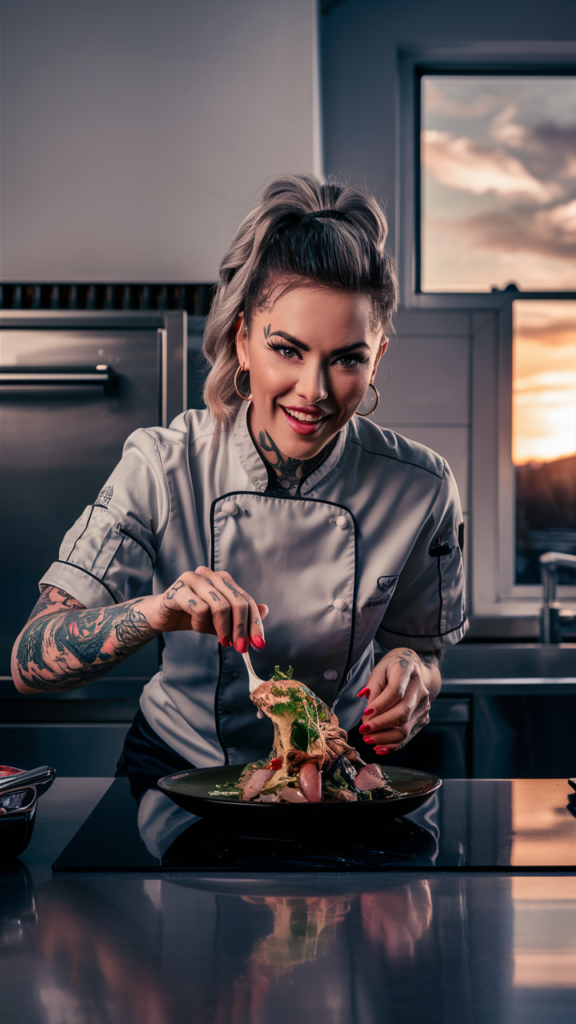
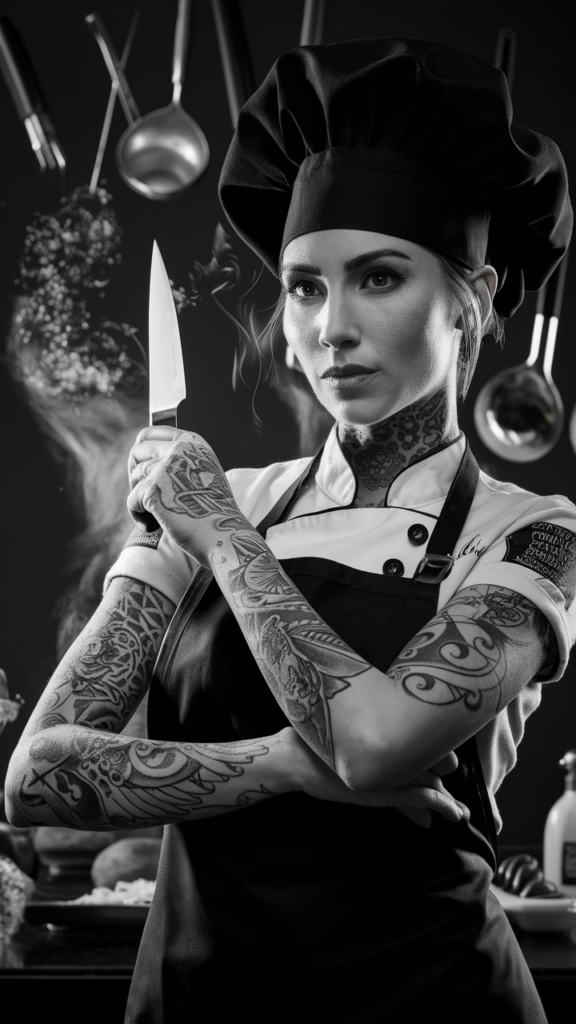
Understanding the Stereotype
The Traditional Chef Image
Historically, chefs were seen as disciplined, almost militaristic figures, dedicated to the precise and methodical art of cooking. The traditional image includes a pristine white uniform, a tall hat, and an air of rigid professionalism.
The Modern Chef Persona
Today’s chefs, however, are breaking free from these constraints. They are artists, innovators, and rebels. Tattoos are a visible testament to this shift, symbolizing creativity, personal stories, and a rejection of old-fashioned norms.
Historical Perspective
Tattoos in Culinary History
The presence of tattoos in the culinary world is not entirely new. There have always been chefs who adorned their bodies with ink, but their visibility and acceptance have significantly increased in recent years.
Early Influences
Early influences of tattoo culture in the culinary world can be traced back to maritime traditions. Many early chefs were sailors or had connections to the sea, where tattoos were commonplace.
Evolution of Culinary Culture
As culinary culture evolved, so did the acceptance of tattoos. The modern culinary scene values uniqueness and personal expression, making it more inclusive for tattooed chefs.
The Rise of Tattooed Chefs
Influential Tattooed Chefs
Several influential chefs have played a significant role in normalizing tattoos in the culinary industry.
Anthony Bourdain
Anthony Bourdain, with his iconic tattoos and rebellious spirit, was one of the first to bring the image of the tattooed chef into mainstream media. His influence extended beyond cooking, impacting how chefs are perceived globally.
Matty Matheson
Matty Matheson, known for his colorful personality and equally vibrant tattoos, is another chef who has embraced and promoted the tattoo culture. His tattoos tell stories of his life, struggles, and triumphs.
Kristen Kish
Kristen Kish, a prominent chef and TV personality, also sports several tattoos. Her ink reflects her personal journey and identity, contributing to her unique culinary voice.
Tattoos as Personal Expression
Art and Meaning
Tattoos are not just body art; they are profound expressions of individuality and personal stories.
Cultural Significance
In many cultures, tattoos carry deep meanings, representing heritage, beliefs, and significant life events. For chefs, these cultural ties often blend with their culinary passions.
Personal Stories
Each tattoo has a story. Whether it’s a tribute to a loved one, a symbol of a pivotal moment, or an artistic expression, tattoos carry personal significance that often inspires a chef’s culinary creations.
Tattoos and Professionalism
Challenging Professional Norms
Tattoos challenge the traditional norms of professionalism in the culinary industry. They push boundaries and question the rigid standards that once dominated the kitchen.
Perception in the Workplace
While some may still view tattoos as unprofessional, the culinary world is increasingly embracing diversity and personal expression. Many kitchens today value skill and creativity over appearance.
Client Reactions
Client reactions to tattooed chefs can vary, but the trend is moving towards greater acceptance. Many diners appreciate the authenticity and individuality that tattooed chefs bring to the table.
Impact on Culinary Creativity
Creative Freedom
Tattoos symbolize a broader creative freedom that extends into the culinary arts. Chefs with tattoos often bring a unique, artistic flair to their dishes, reflecting their personal style.
Inspiration from Art
The art of tattooing and the art of cooking share common ground. Both require skill, creativity, and a deep appreciation for aesthetics. Many chefs draw inspiration from their tattoos, infusing their culinary creations with similar artistic passion.
Unique Culinary Styles
Tattooed chefs often develop distinctive culinary styles. Their individuality shines through in their cooking, setting them apart in a competitive industry.
Media Influence
Representation in Media
The media plays a crucial role in shaping public perception. Tattooed chefs are increasingly featured in cooking shows, documentaries, and social media, helping to normalize and celebrate their presence in the industry.
Television and Film
Shows like “Top Chef” and “Chef’s Table” often showcase tattooed chefs, highlighting their skills and personal stories. This representation helps break down stereotypes and fosters acceptance.
Social Media Presence
Social media platforms like Instagram and TikTok provide a space for tattooed chefs to share their work and connect with a broader audience. Their vibrant tattoos and creative dishes attract followers and fans, further normalizing tattoos in the culinary world.
Future Trends
The Future of Tattooed Chefs
The future looks bright for tattooed chefs. As societal norms continue to evolve, the culinary world will likely become even more inclusive, embracing chefs from diverse backgrounds and with unique personal expressions.
Changing Perceptions
Perceptions are shifting. Tattoos are becoming symbols of creativity, authenticity, and individuality rather than rebellion or unprofessionalism. This change is paving the way for future generations of chefs.
Impact on New Generations
Younger chefs entering the industry see tattooed chefs as role models. This influence encourages them to embrace their individuality and express themselves freely, whether through tattoos or other forms of personal expression.
Conclusion
Embracing Diversity in the Kitchen
The rise of tattooed chefs marks a significant shift in the culinary world. By breaking stereotypes and embracing personal expression, these chefs are redefining what it means to be a professional in the kitchen. Their tattoos tell stories, inspire creativity, and bring a unique flavor to the culinary arts. As the industry continues to evolve, the acceptance and celebration of tattooed chefs will only grow, enriching the world of food with diversity and individuality.
FAQs
Why do many chefs have tattoos?
Many chefs have tattoos because they see them as a form of personal expression. Tattoos often tell stories of their lives, passions, and experiences, which can also inspire their culinary creations.
Do tattoos affect a chef’s career opportunities?
While there may still be some traditional establishments that frown upon tattoos, the overall trend in the culinary industry is towards greater acceptance. Skill and creativity often outweigh appearance, allowing tattooed chefs to thrive.
Are tattoos common in culinary schools?
Yes, tattoos are becoming more common in culinary schools. As societal norms shift, more students feel comfortable expressing themselves through tattoos.
What do tattoos typically represent for chefs?
For chefs, tattoos often represent significant personal experiences, cultural heritage, or artistic inspiration. They can be a tribute to loved ones, a reminder of pivotal moments, or simply an expression of their unique personality.
How has the acceptance of tattoos changed in the culinary industry?
Acceptance of tattoos in the culinary industry has grown significantly. As more influential chefs proudly display their tattoos, the stigma diminishes, paving the way for a more inclusive and diverse culinary world.
